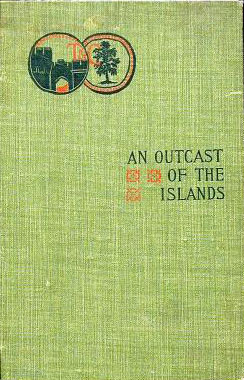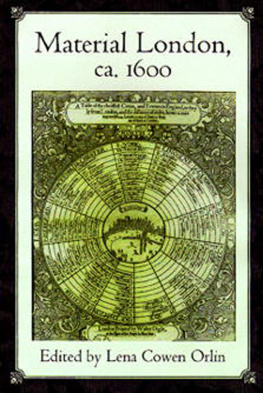CHAPTER FIVE
When she opened her eyes at last and sat up, Heyst scrambled quickly to his feet and went to pick up her cork helmet, which had rolled a little way off. Meanwhile she busied herself in doing up her hair, plaited on the top of her head in two heavy, dark tresses, which had come loose. He tendered her the helmet in silence, and waited as if unwilling to hear the sound of his own voice.
"We had better go down now," he suggested in a low tone.
He extended his hand to help her up. He had the intention to smile, but abandoned it at the nearer sight of her still face, in which was depicted the infinite lassitude of her soul. On their way to regain the forest path they had to pass through the spot from which the view of the sea could be obtained. The flaming abyss of emptiness, the liquid, undulating glare, the tragic brutality of the light, made her long for the friendly night, with its stars stilled by an austere spell; for the velvety dark sky and the mysterious great shadow of the sea, conveying peace to the day-weary heart. She put her hand to her eyes. Behind her back Heyst spoke gently.
"Let us get on, Lena."
She walked ahead in silence. Heyst remarked that they had never been out before during the hottest hours. It would do her no good, he feared. This solicitude pleased and soothed her. She felt more and more like herself--a poor London girl playing in an orchestra, and snatched out from the humiliations, the squalid dangers of a miserable existence, by a man like whom there was not, there could not be, another in this world. She felt this with elation, with uneasiness, with an intimate pride--and with a peculiar sinking of the heart.
"I am not easily knocked out by any such thing as heat," she said decisively.
"Yes, but I don't forget that you're not a tropical bird."
"You weren't born in these parts, either," she returned.
"No, and perhaps I haven't even your physique. I am a transplanted being. Transplanted! I ought to call myself uprooted--an unnatural state of existence; but a man is supposed to stand anything."
She looked back at him and received a smile. He told her to keep in the shelter of the forest path, which was very still and close, full of heat if free from glare. Now and then they had glimpses of the company's old clearing blazing with light, in which the black stumps of trees stood charred, without shadows, miserable and sinister. They crossed the open in a direct line for the bungalow. On the veranda they fancied they had a glimpse of the vanishing Wang, though the girl was not at all sure that she had seen anything move. Heyst had no doubts.
"Wang has been looking out for us. We are late."
"Was he? I thought I saw something white for a moment, and then I did not see it any more."
"That's it--he vanishes. It's a very remarkable gift in that Chinaman."
"Are they all like that?" she asked with naive curiosity and uneasiness.
"Not in such perfection," said Heyst, amused.
He noticed with approval that she was not heated by the walk. The drops of perspiration on her forehead were like dew on the cool, white petal of a flower. He looked at her figure of grace and strength, solid and supple, with an ever-growing appreciation.
"Go in and rest yourself for a quarter of an hour; and then Mr. Wang will give us something to eat," he said.
They had found the table laid. When they came together again and sat down to it, Wang materialized without a sound, unheard, uncalled, and did his office. Which being accomplished, at a given moment he was not.
A great silence brooded over Samburan--the silence of the great heat that seems pregnant with fatal issues, like the silence of ardent thought. Heyst remained alone in the big room. The girl seeing him take up a book, had retreated to her chamber. Heyst sat down under his father's portrait; and the abominable calumny crept back into his recollection. The taste of it came on his lips, nauseating and corrosive like some kinds of poison. He was tempted to spit on the floor, naively, in sheer unsophisticated disgust of the physical sensation. He shook his head, surprised at himself. He was not used to receive his intellectual impressions in that way--reflected in movements of carnal emotion. He stirred impatiently in his chair, and raised the book to his eyes with both hands. It was one of his father's. He opened it haphazard, and his eyes fell on the middle of the page. The elder Heyst had written of everything in many books--of space and of time, of animals and of stars; analysing ideas and actions, the laughter and the frowns of men, and the grimaces of their agony. The son read, shrinking into himself, composing his face as if under the author's eye, with a vivid consciousness of the portrait on his right hand, a little above his head; a wonderful presence in its heavy frame on the flimsy wall of mats, looking exiled and at home, out of place and masterful, in the painted immobility of profile.
And Heyst, the son, read:
Of the stratagems of life the most cruel is the consolation of love--the most subtle, too; for the desire is the bed of dreams.
He turned the pages of the little volume, "Storm and Dust," glancing here and there at the broken text of reflections, maxims, short phrases, enigmatical sometimes and sometimes eloquent. It seemed to him that he was hearing his father's voice, speaking and ceasing to speak again. Startled at first, he ended by finding a charm in the illusion. He abandoned himself to the half-belief that something of his father dwelt yet on earth--a ghostly voice, audible to the ear of his own flesh and blood. With what strange serenity, mingled with terrors, had that man considered the universal nothingness! He had plunged into it headlong, perhaps to render death, the answer that faced one at every inquiry, more supportable.
Heyst stirred, and the ghostly voice ceased; but his eyes followed the words on the last page of the book:
Men of tormented conscience, or of a criminal imagination, are aware of much that minds of a peaceful, resigned cast do not even suspect. It is not poets alone who dare descend into the abyss of infernal regions, or even who dream of such a descent. The most inexpressive of human beings must have said to himself, at one time or another: "Anything but this!"...
We all have our instants of clairvoyance. They are not very helpful. The character of the scheme does not permit that or anything else to be helpful. Properly speaking its character, judged by the standards established by its victims, is infamous. It excuses every violence of protest and at the same time never fails to crush it, just as it crushes the blindest assent. The so-called wickedness must be, like the so-called virtue, its own reward--to be anything at all...
Clairvoyance or no clairvoyance, men love their captivity. To the unknown force of negation they prefer the miserably tumbled bed of their servitude. Man alone can give one the disgust of pity; yet I find it easier to believe in the misfortune of mankind than in its wickedness.
These were the last words. Heyst lowered the book to his knees. Lena's voice spoke above his drooping head:
"You sit there as if you were unhappy."
"I thought you were asleep," he said.
"I was lying down right enough, but I never closed my eyes."
"The rest would have done you good after our walk. Didn't you try?"
"I was lying down, I tell you, but sleep I couldn't."
"And you made no sound! What want of sincerity. Or did you want to be alone for a time?"
"I--alone?" she murmured.
He noticed her eyeing the book, and got up to put it back in the bookcase. When he turned round, he saw that she had dropped into the chair--it was the one she always used--and looked as if her strength had suddenly gone from her, leaving her only her youth, which seemed very pathetic, very much at his mercy. He moved quickly towards the chair.


















